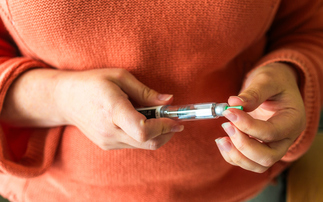The relationship between people and drugs can be a self-destructive one as what often starts out as a leisure activity can turn into a life-threatening dependence. Sarah Parkinson explains
Drug abuse is the use of illegal chemicals or substances that are not medically prescribed or socially accepted.
People dependent on drugs usually take them to improve how they feel but usage can become out of control and may eventually start to rule their lives. Even when use leads to serious physical and mental problems, users may still not want to stop. If they decide to give up, they may find this an incredibly difficult task.
All drugs, including alcohol and tobacco, affect the brain. Depending on what drug is taken, different parts of the brain are affected by chemical inbalances which create the feelings and sensations associated with drug taking.
Different drugs have different effects - some may be minimal, but users may become dependent on others. However, it is not possible to say exactly how someone will be affected by a drug.
Drugs may be more harmful to young people because their bodies and brains are still developing. The same drug can also have different effects at different times depending on its purity, people's mood, health, circumstances and surroundings.
Some drugs are more addictive and some people are more likely to become addicted.
Certain drugs can trigger underlying mental health issues or make existing ones worse.
Drugs are split into three general groups by their effects:
- Stimulants (uppers) such as amphetamine and cocaine increase users' energy, activity, heart rate and blood pressure.
The risks include users may feel tense and anxious while using and afterwards many feel tired and depressed. These drugs can cause sudden death from heart attack or stroke. Frequent high doses can cause panic, hallucinations and weight loss. They also place strain on the heart and can cause mental illness.
- Depressants (downers) such as alcohol, heroin and solvents relieve anxiety and tension, have a calming influence and slow users down, making them feel drowsy and forgetful.
The risks include overdose leading to coma or death, highly addictive meaning higher doses may be needed in order to feel 'normal', damage to veins, hepatitis, HIV.
- Hallucinogens such as cannabis, LSD, magic mushrooms make users see, hear and feel things differently.
The risks include impairment of users' ability to concentrate, tiredness, lack of motivation, development or worsening of mental health problems, paranoia, heart and breathing problems.
Some drugs such as tranquillisers and painkillers prescribed by doctors can also be misused. If an individual is found in possession of a 'controlled' substance that has not been prescribed then they could face a custodial sentence.
Taking a cocktail of drugs and/or alcohol could be fatal.
Giving up
'Cold turkey' is the general term used to describe the period when people stop taking drugs. Symptoms of withdrawal vary but are usually very unpleasant and can include sweating, vomiting, stomach pains and weakness.
Approximately 40,000 people are arrested for drug offences each year and depending on the class of drug there are various consequences. The table above shows the custodial sentences for being caught in possession or dealing various drugs.
Alarming figures
According to the most recent government figures, more than a third of people in the UK have taken drugs in their lifetime. The UK, as with alcohol, has a binge mentality when it comes to drugs.
- Cocaine - class A drug - estimated number of users 776,000, 2.4% of population.
- Ecstasy - class A drug - estimated number of users 502,000, 1.6% of population.
- Heroin - class A drug - estimated number of users 39,000, 0.1% of population.
- Amphetamines - class A/B drug - estimated number of users 426,000, 1.3% of population.
- Cannabis - class C drug - estimated number of users 2,655,000, 8.7% of population.
It is very difficult to capture accurate data on this subject due to the nature of the activity and therefore the figures above are underestimates.
In addition, there are worrying statistics for parents of young people as 34% of 13 year olds said they had been offered a drug and 13% said they had used a drug. Up to 65% of 15 year olds said they had been offered a drug while 37% said they had used a drug.
Sarah Parkinson is life and disability underwriter at Aegon Scottish Equitable
Sources
www.drugscope.org.uk
KnowTheScore.info/Drugs
news.bbc.co.uk
Swiss Re
Underwriting implications
Suicide attempts are a major danger linked with drug abuse and are common when withdrawing, hallucinating, during a depressive episode or through accidental or intentional intravenous overdose.
The use of unsterilised needles also plays a key part in the risks associated with drug use, such as hepatitis and HIV.
Insurance companies would obtain a drugs questionnaire and in some circumstances a general practitioner's report. It is imperative the type of drug used is known, whether it is current or past use, how often the drug was taken and when it was last taken. In addition to this, the applicant's age, social circumstances and occupation are considered.
An application for life, critical illness and total and permanent disability benefit would normally be declined for current drug use but for current use of cannabis, depending on the usage, rated terms may be offered. For past drug use, rated terms could be offered depending on the years since last used and assuming there are no residual psychological or physical problems.











